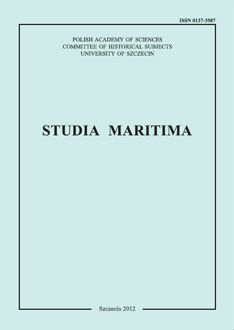Kontakte der Familie von Kameke mit dem Deutschen Orden in Preussen um die Wende vom 14. bis zum 15. Jahrhundert. Ein Beitrag zur Funktionierung der R
The relations OF Kameke FAMILY and the Teutonic Knights in Prussia at the turn of the 14th and 15th centuries: a contribution to the discussion on the
Author(s): Rafał SimińskiSubject(s): History
Published by: Wydawnictwo Naukowe Uniwersytetu Szczecińskiego
Keywords:
Summary/Abstract: At the turn of the 14th and 15th centuries the former geopolitical array in Central Eastern Europe was conspicuously remodeled. The personal union between the Kingdom of Poland and the Grand Duchy of Lithuania made these two countries serious regional rivals for the Teutonic state in Prussia. Both sides entered an intensive search for allies whose support could have been significant in a potential armed confrontation. Three Pomeranian Duchies - of Słupsk (Stolp), Szczecin (Stettin) and Wolgast - played an important part in these endeavours. It was a matter of importance for both political sides to win Pomeranian knighthood over to their cause. Both the Teutonic knights and the Polish side were aware of that. Knighthood elites played an important role in political life in West Pomerania. Source documentation reveals that Kurd Kemeke and his sons maintained links with the Teutonic Knights in Prussia for about 25 years, in the times of stormy relations between the Teutonic state and Poland and Lithuania at the turn of the 14lh and 15th centuries. These links were of various kinds. Kurd Kemeke entered into service with the Teutonic Knights being still a liegeman of Kammin bishops. On the other hand, his sons belonged to the closest circle of Bogusław VIII who was in a prolonged conflict with the Teutonic Knights. Klaus, as a counsellor to the Duke of Słupsk, influenced his policy on the Teutonic Knights. He also held the post of duke's official in Polanów (Pollnow). Karze was duke's alderman in Szczecinek (Neustettin) for at least ten years. All these allow us to identify them as typical representatives of the borderland knighthood. The sphere of their public activities as well as their private interests concentrated on the Pomeranian-Teutonic borderland.
Journal: Studia Maritima
- Issue Year: 26/2013
- Issue No: 1
- Page Range: 5-28
- Page Count: 24
- Language: German

